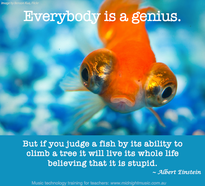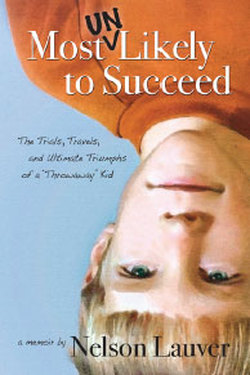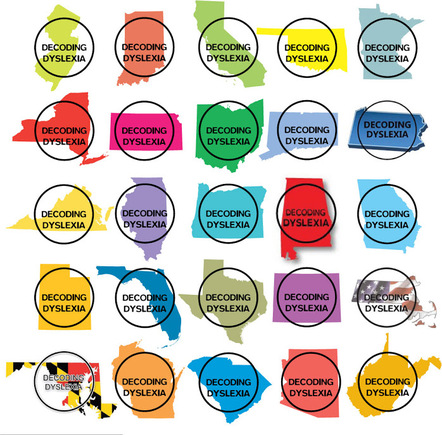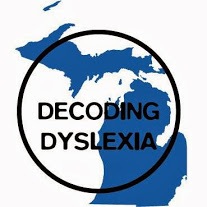We must remain open to learning in education, not be led by businesses or put all of our eggs in one basket of research. Much of the research has led us to better information but none of it looks at the structures of our language and how it affects the brain when studied with the interrelationships of morphology, etymology and phonology.....yet.
“The greatest enemy of knowledge is not ignorance,
it is the illusion of knowledge.”
-Stephen Hawking
What is your background?
I grew up in the middle of the mitten state, Michigan. When I was a young teenager, I spent a year living abroad in Amsterdam with my mother and brother at our oma’s house.
I attended Eastern Michigan University where I earned a bachelor’s degree in education. I hold an elementary teaching certificate with an endorsement in Emotionally Impaired Education K-8. When I was halfway through my master’s Degree in Learning Disabilities I had a high-risk pregnancy that caused me to place everything on hold. As life goes, raising four kids and working full-time has kept that on hold. After we finish helping our kids through college, I may consider finishing what I started, but then again, maybe not. While I have not gone through a university to continue to learn about dyslexia, assessments and literacy, I have continued to read, devour really, books, research, webinars, online classes and conferences in these areas. I’ve amassed quite an education outside of the university and in truth, I’ve learned more about the structure of the English language than I ever did in all of my undergraduate and graduate coursework or professional development. There is a great meme that says….a worried mother does better research than the FBI!
What is your profession?
I have been a Special Education Teacher at a public elementary school for the past 25 years (2 of those years in general education). I am one of the Founding Members of the Michigan chapter of Decoding Dyslexia. I have served on the Department of Education’s Standards and Practice Revision Committee. I am the owner of Empower Learning Center where I tutor individual and small groups of students and I teach classes to help teachers, administrators, and parents begin their journey in understanding the structure of the English language through Structured Word Inquiry.
What are your experiences with the writing system and how does your work fit into the writing system?
How much time do you have? Should I start at the beginning or in the middle? Because technically, I thought I only had a middle but now realize I had a beginning when it comes to experiences that led me to study the writing system. Let me explain: in short, I thought I was just not cut out for learning--like I’d stood in the wrong line when brains were given out. I didn’t feel this way right from the start of elementary school because I was good at decoding and encoding, that is, I can read, which really just means announce, just about any word -- I’m great with patterns. In elementary school, learning to decode and encode by patterns was easy for me. My visual memory fund is large and it helped me “look” like a good reader and speller. But I wasn’t good at comprehending or written expression. As the vocabulary increased in middle school, my comprehension decreased. Teachers began asking more in-depth questions, I had no idea what to write because I had no idea what they were asking. My ability to word call was masking the underlying holes in my ability to comprehend. I felt dumb. I appeared lazy.
Pretty soon, my attitude began to mimic what my teachers & I thought of me. My 8th grade year was spent in a foreign country, learning the language, using the skills I had been given in spades --learning by pattern. I quickly picked up the language but, we were given aptitude tests to place us in the right classes in an international school. I was placed in level C, there were only 3 levels. However, my teachers soon recognized I had more skills than a test showed and they looked out for me so they moved me up to some level A classes. Coming back to America, my parents felt it would be good for my self-esteem to stay with my friends and go on to 9th grade even though my placement tests again showed it was an academic gamble.
High school was by far, the worst experience. I tried to sink into the walls and be forgotten and have since tried to forget most of those years, save a few people and experiences. Any place I found success was always outside of the classroom except for my anatomy and computer programming classes -- looking back it was the teachers in each of them, and my ability to recognize and work with patterns or memorize lists and lists of medical terms. My algebra teacher was the same for computer programming, however, my experiences in each was totally different as was my attitude -- I fulfilled what I expected of myself. I failed geometry and barely passed some others. But, in the end, I earned a bare minimum GPA to get into a mediocre university.
Despite my challenges with learning, no one saw them that way. I’d let myself get in my own way. Teachers who might’ve wanted to help, didn’t recognize or know how to help me and I probably hindered their drive to want to help because my attitude was how I felt -- like I just didn’t have the capacity. I got tired of hearing how I could do so much more “if you just applied yourself” I didn’t know what they meant by that and once it was explained, it made me mad, I was applying myself! I was trying but I was failing, I must not be smart enough.
In every success story is usually a parent who never gives up, thankfully I had such a parent. My dad put Herculean efforts into my education, oh, and highlighters were invented, or at least at my disposal mid-way through freshman year of college. I learned how to highlight the text that was important (yes, my early textbooks were pretty much painted in yellow) but then I began to learn how to discern the really important parts and I put a lot of energy into trying really hard to learn. My dad’s words always sat on a shelf in my mind that told me, “Grades don’t matter as much as long as you learn the material in your own way”; “Tests aren’t all they’re cracked up to be”; and, most importantly, “This education is costing me a lot of money, and you’re worth it.”
Fast forward a bunch of years, my ability to recognize patterns --visually and intuitively, skills that I thought were weird and useless, have served me well when it comes to recognizing challenges children face in school and then educating them.
Now onto the middle where I once thought it began….
My youngest child met language and literacy with a locked door. From his earliest ages, even before he could talk, language processing challenges were evident. When asked a yes/no question, he would shake his head yes, then no, then back to yes again, or vice-versa. We were always guessing at what he meant. When he began talking, things did not go much better. When he announced a choice, inevitably, he meant something else which usually ended up with him in tears or even a melt-down. He would tell detailed stories of an event he’d had years earlier but give all the wrong names of the people involved -- like saying one grandpa when it was the other grandpa or calling his aunt, “Uncle” or not remembering the name of someone/thing that was common and familiar to him. His inconsistency with recall was concerning. His preschool teacher recommended he wait a year before entering Kindergarten. His Kindergarten teacher recommended he be held back from 1st grade. As a Special Education teacher, and due my husband’s serious struggles with reading, I recognized clear markers of learning disabilities and knew that another year of any grade was not going to suddenly unlock this door so instead of holding him back, I opted for an evaluation for learning disabilities. The school felt his needs were more due to emotional issues because his frustration level was so high. I was certain it was learning issues that were causing the melt-downs not the other way around. I saw my son outside of a learning environment, where he was a completely different child.
Eventually, my son qualified for special education services as a learning disabled student. A tough pill to swallow. I felt he was doomed for a lifetime of struggles, just like his dad. I became his resource room teacher, a gift that has never stopped giving. Not only was I happy to see him more often every day, I could also quell his emotional fears of academics on an hourly basis instead of at the end of a long day when all events had already played out. In addition to that, I was gifted with a perspective I had not been privy to yet -- I was the mother and the teacher so I knew what he’d been presented with at home and at school and I could see it wasn’t enough to make him a reader. I could remove all the variables, as a teacher I could not say his parents weren’t reading enough to him and as a parent I couldn’t say the teachers weren’t doing enough for him because I was both. What I could truly say was that the education I had been provided wasn’t enough to educate this bright young boy who presented himself very differently in school than the kid I saw at home. At school he quickly met with frustration or sadness -- he looked like a kid who didn’t apply himself. At home, he was a fast learner when it came to hands-on things, he could plan and build architectural structures from blocks that marveled city planning zone committees. Without that view, as a teacher, I’m afraid to admit, I might not have approached him as capable of a child as he truly was. He was just like his dad, locked out of the printed word and little did I recognize at the time, also challenged by language processing and recall like his mother. The obvious challenges of not learning the alphabet or being able to name the letters or sounds was like a marquee sign, so bright it drowned out the rest of his challenges.
As I mentioned earlier, a worried mother does better research than the FBI, so I set off to learn as much as I could about programs that might do a better job than the ones I’d had access to in my classroom. The more I learned about dyslexia, the more I began to recognize the varied characteristics in my other students, both past and present. I knew I had always put my best effort into reaching and teaching all my students but I began to wonder if that was enough. Was effort going to make a difference? So far, it had been making enough of a difference for my students but up until that time, I felt that there were other variables hindering progress that were out of my control. I began to look for better and deeper programs and demanded training and professional development that would fix my broken little boy and his friends and classmates. Eventually, I won the battle to get more training in a new sound-based system. My administrators treated it like it would be a good tool to put in my teacher toolbox. I thought I’d hit the jackpot and adamantly argued that it was going to be the training that would turn these kids into readers and every teacher needed it! I must have appeared like an overwrought mother instead of a teacher seeking to teach her students to read.
I took that new sound-based training, teaching kids to “trust your ears” and chunking words into their spoken syllables and memorizing the letters that made those sounds. There was a period of excelled progress. I have data that shows it. I was happy that the kids picked up on this system faster than they did with OG, Sonday, Barton or Project Read lessons. But there was something missing, while kids’ fluency increased, their comprehension did not and neither did their spelling. In addition, by that time, my son was onto middle school and I continued to tutor him after school with that method. I saw a bit of progress in his reading too, but not enough and not in comprehension or spelling.
At the end of the year, my students were faced with a brand new state test to take that blew buckshot holes in the consistency and frequency of instructional lessons. Because that infrequency and inconsistency would likely result in minimal progress, (if not back-sliding) and the fact that I had begun noticing problems with the sound-based system anyway, I recognized a good moment in time to try something different. I decided to forgo the sound-based systematic lessons for the last marking period of the year and replace it with Structured Word Inquiry (SWI) studies. Earlier in the year, I had stumbled upon a video conference by Pete Bowers of Word Works Kingston in Ontario, Canada that made a lot of sense with word structure and hit an inquiry-based approach that was big in my school as we were an IB (International Baccalaureate) school. I hadn’t ignored it completely, armed with a teensy bit of knowledge, I’d exposed the students to looking for the meaningful unit, base elements; suffixes and prefixes all year on top of our sound-based lessons. Since SWI didn’t rely on my students mastering each lesson before moving on to the next like sound-based lessons did, the timing of this was ripe for giving it a go full force. I was astonished at the end of the marking period to find that despite the inconsistencies in our schedule and infrequency of lessons that their skills increased anyway!
I began taking as many classes from Real Spelling, Pete Bowers and LEX as I could. I found a true understanding of the English language and that spelling isn’t crazy because words have structure and a history that influences they are spelled. My teaching has evolved from teaching kids about sounds and rules to teaching them to analyze a word: look for meaning, relationships and history. They learn to investigate the function of a grapheme, detect relationships among morphemes, research etymologies, to think critically, to discern possibilities and reason them out by finding evidence to support or deny a hypothesis about the structure and the make-up of words. They study one word and get a bunch more in the process. They read for meaning now, not to decode a letter or syllable. They seek relationships among the morphemes which builds connection to other words that share the morpheme or share a history back to the orthographic root. This causes something profound….an increase in comprehension and thinking skills. Through the building of our understanding of words, one at a time, (really, study one word, get a bunch more for free!), kids’ lives are being changed. So is mine. Reading words in this way causes me to see connections and relationships to other words. It has caused me to recognize how much of my own brain’s power was allotted to visual memorization and recall of those visuals when reading/spelling. I can now read with less energy usage and gain more comprehension; I allot my brain power to thinking about the content of my writing instead of speed-searching for the visual or mnemonic to spell words, something I wasn’t even aware I had been doing my whole life. I see this phenomenon happening with my students as well and have listened to them express how much more energy they have when reading, that it isn’t as hard anymore. I watch their data points soar and continue to climb. But most importantly, I witness behavioral changes: a drive to learn; increased self-esteem and self-reliance because they have tapped into the tools of their own mind. I know they are paving roads to successful futures by increasing their vocabulary, reading, writing, spelling and thinking skills.
Little did I know when I set out to learn more about how to help my son, it would turn into something much bigger than just us. I’m honored each time I am able to play a small part in influencing the learning journeys of kids, parents, and educators around the world.
Where can we find out more about your work & SWI?
Website: www.seethebeautyindyslexia.com
Empower Learning Center
SWI Blog: http://barnettsbuzzingblog.edublogs.org/
Word Works Literacy Centre
Real Spelling
MaryBeth Steven
Rebecca Loveless
Learning About Spelling











 RSS Feed
RSS Feed
